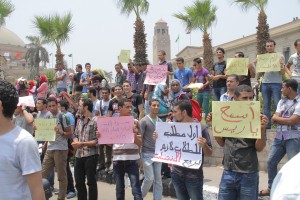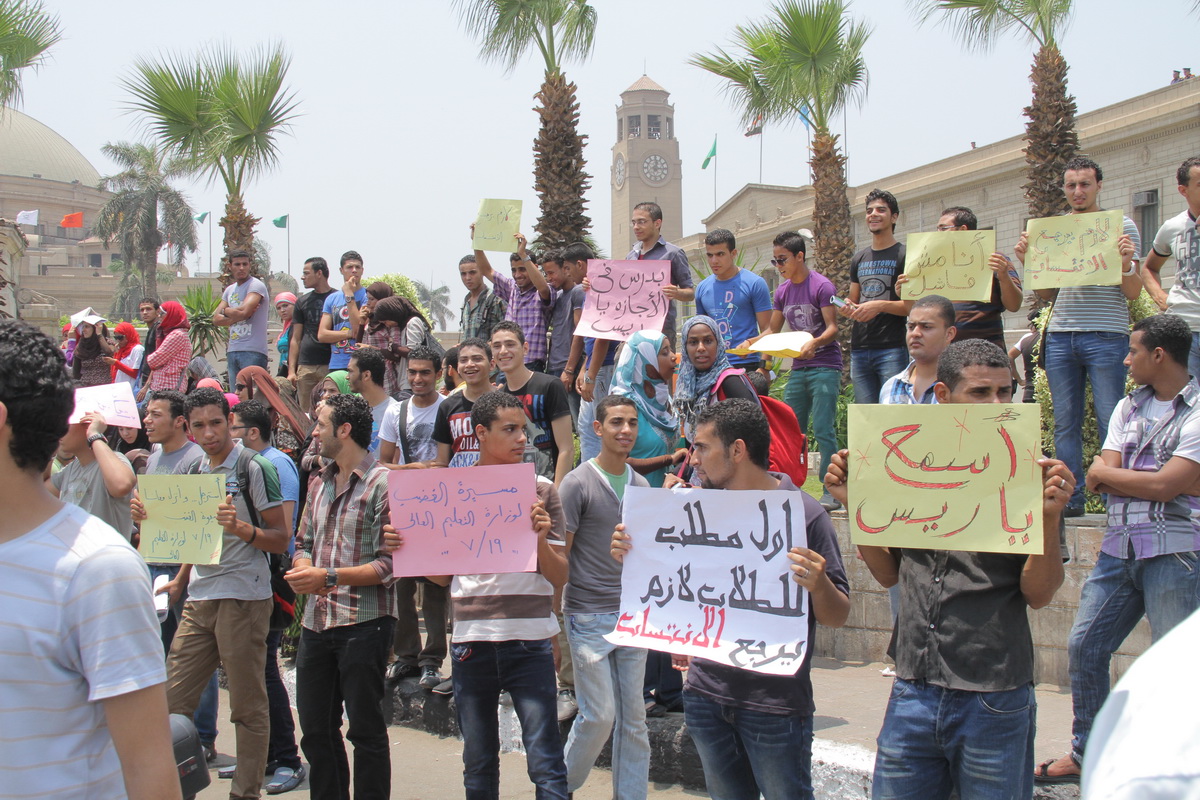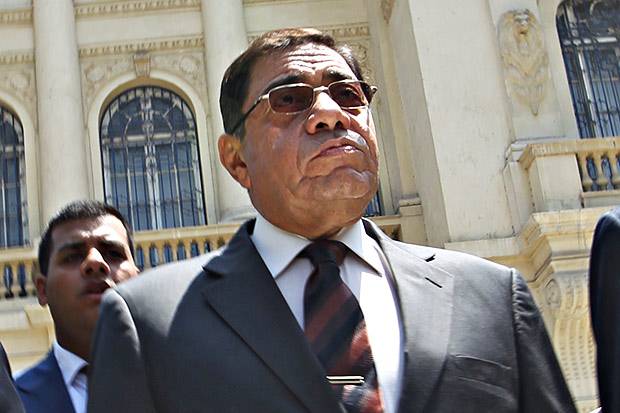
Amid rising controversy regarding the legitimacy of new university bylaws, polls have been organised throughout Egyptian universities to survey students’opinions.
The Egyptian Student Union will have the ultimate decision on the passing of the bylaws. “The polls, ongoing throughout Wednesday and Thursday, are only advisory and not binding,” president of the (ESU), Ahmed Omar, said, “and neither are their results.”
Students have been calling for changes to the 1979 state university governing bylaws for years, calling them “state security” bylaws, as they restrained students’ freedom to hold activities within universities.
The Muslim Brotherhood-dominated Egyptian Student Union drafted the bylaws but their legitimacy is in question as seven universities, not dominated by the Brotherhood, boycotted their election.
Heleish confirmed that a collection of student and political movements, including the Egyptian Social Democratic Party (ESDP), Al-Dostour party, the Revolutionary Socialists, the Egyptian Current party and Al-Wasat party, are boycotting the two-day poll.
“It’s a mock, unreal poll which aims to know the opinion of students who aren’t even aware of the contents of the draft bylaws,” (ESDP) student representative, Taha Heleish, said, adding the governing bylaws were drafted not by the students but by the ESU who do not represent all students.
The ESU claimed it held workshops for students to participate in drafting the bylaws. Heleish claimed these workshops were held behind closed doors away from real student participation.
The draft shall be presented to the Supreme Council of Universities on Saturday, to be ratified on Sunday, stated Heleish.
“We shall protest against the coming bylaws the way we did against the 1979 governing bylaws,” Heleish said, “we shall hold exhibitions in different faculties displaying the flaws of the governing bylaws, which were drafted through a top-down approach.”
Omar had assured the Daily News Egypt in late September that a referendum would be held on the bylaws. He said that when it came to the time, this was not possible, “there wasn’t a clear mechanism proposed for carrying out the referendum and it would have been very difficult to implement.”
Heleish said a collection of students had proposed to the ESU a set of mechanisms for holding a student referendum, only to have their suggestions turned down.
They suggested a referendum on only the controversial articles within the draft to save costs and time. Omar said the ESU refused saying it is illegal to do so.
“The ESU also had concerns about the supervision of the referendum process,” Heleish said, “we suggested that the Youth Welfare supervise it. They [the ESU] refused saying that the Youth Welfare could forge the results.”
Heleish pointed out the election of the current ESU was supervised by the Youth Welfare. “If they have doubts about the Youth Welfare’s integrity when it comes to supervising elections, then they should have doubts about their own legitimacy since it’s derived from winning elections the Youth Welfare had supervised.”
There isn’t currently a clear mechanism for holding the polls. The secretary generals of the student union in each university will decide. “Some secretary generals accept the draft governing bylaws altogether and do not wish to make any changes,” Heleish said.
Cairo University mathematics professor and member of the March 9 university movement Laila Soueif stated the draft governing bylaws she checked out is much better than any governing bylaws present before.
“Nevertheless, it is the students who should be asked about their opinions and not the faculty staff,” Soueif said, adding that the students’ role is the most important factor in the entire drafting process. “The top priority is to make sure that the drafting of the governing bylaws is not wrapped up hastily.”
The Egyptian Student Union met twice with the disaffected students in talks moderated by Soueif, but the talks served only to widen the rift between them.
Members of the student groups made clear their disappointment with the union, and refused to recognise its legitimacy. However they agreed to cooperate with the union for the purpose of producing representative governing bylaws. When their efforts failed, the members held a march to protest the draft bylaws over two weeks ago.





